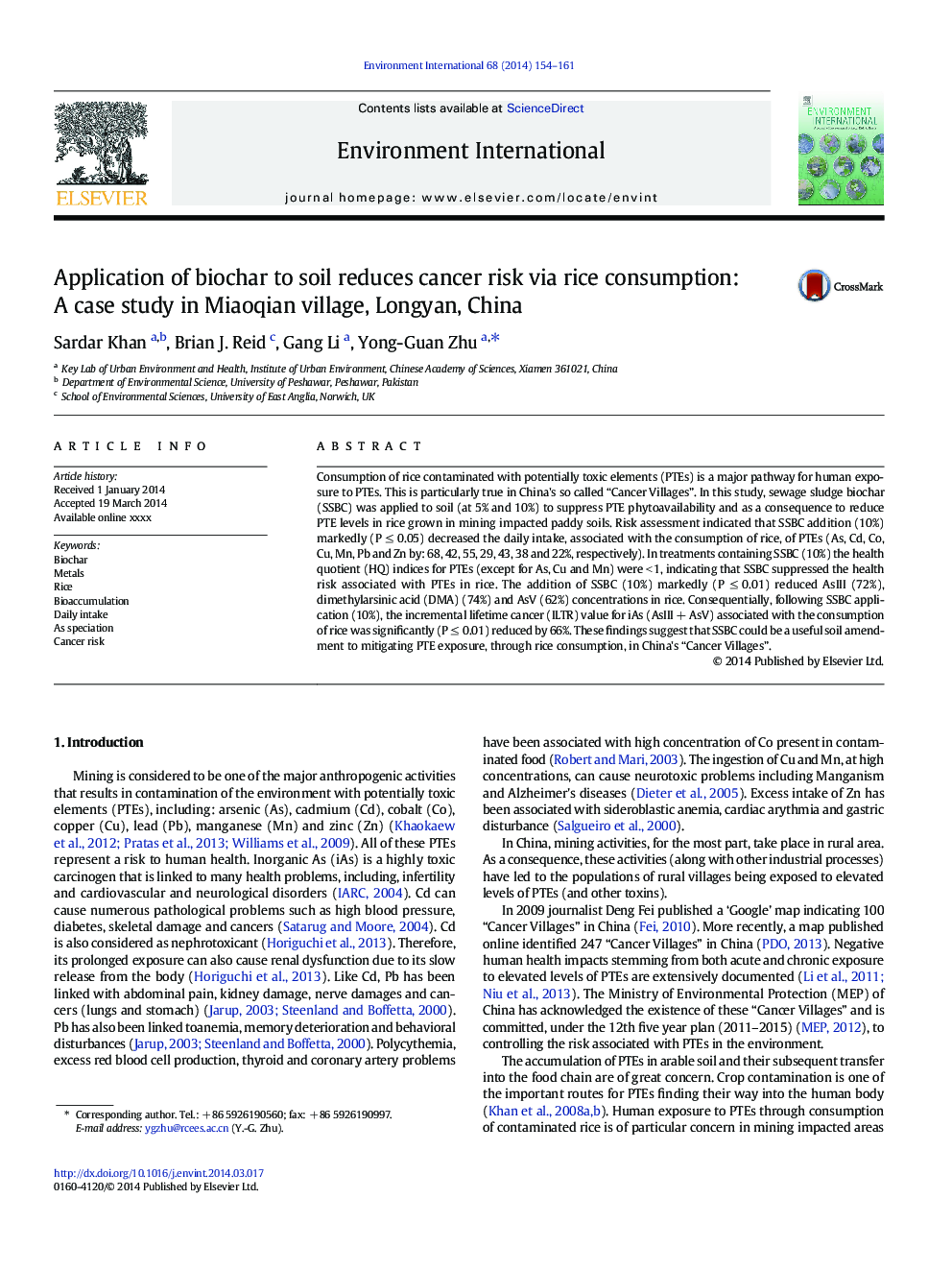| کد مقاله | کد نشریه | سال انتشار | مقاله انگلیسی | نسخه تمام متن |
|---|---|---|---|---|
| 6314022 | 1619060 | 2014 | 8 صفحه PDF | دانلود رایگان |
عنوان انگلیسی مقاله ISI
Application of biochar to soil reduces cancer risk via rice consumption: A case study in Miaoqian village, Longyan, China
ترجمه فارسی عنوان
استفاده از زیست تخمیر به خاک باعث کاهش خطر ابتلا به سرطان از طریق مصرف برنج می شود. مطالعه موردی در روستای میائوغیان، لانگاین، چین
دانلود مقاله + سفارش ترجمه
دانلود مقاله ISI انگلیسی
رایگان برای ایرانیان
کلمات کلیدی
موضوعات مرتبط
علوم زیستی و بیوفناوری
علوم محیط زیست
شیمی زیست محیطی
چکیده انگلیسی
Consumption of rice contaminated with potentially toxic elements (PTEs) is a major pathway for human exposure to PTEs. This is particularly true in China's so called “Cancer Villages”. In this study, sewage sludge biochar (SSBC) was applied to soil (at 5% and 10%) to suppress PTE phytoavailability and as a consequence to reduce PTE levels in rice grown in mining impacted paddy soils. Risk assessment indicated that SSBC addition (10%) markedly (P â¤Â 0.05) decreased the daily intake, associated with the consumption of rice, of PTEs (As, Cd, Co, Cu, Mn, Pb and Zn by: 68, 42, 55, 29, 43, 38 and 22%, respectively). In treatments containing SSBC (10%) the health quotient (HQ) indices for PTEs (except for As, Cu and Mn) were < 1, indicating that SSBC suppressed the health risk associated with PTEs in rice. The addition of SSBC (10%) markedly (P â¤Â 0.01) reduced AsIII (72%), dimethylarsinic acid (DMA) (74%) and AsV (62%) concentrations in rice. Consequentially, following SSBC application (10%), the incremental lifetime cancer (ILTR) value for iAs (AsIII + AsV) associated with the consumption of rice was significantly (P â¤Â 0.01) reduced by 66%. These findings suggest that SSBC could be a useful soil amendment to mitigating PTE exposure, through rice consumption, in China's “Cancer Villages”.
ناشر
Database: Elsevier - ScienceDirect (ساینس دایرکت)
Journal: Environment International - Volume 68, July 2014, Pages 154-161
Journal: Environment International - Volume 68, July 2014, Pages 154-161
نویسندگان
Sardar Khan, Brian J. Reid, Gang Li, Yong-Guan Zhu,
